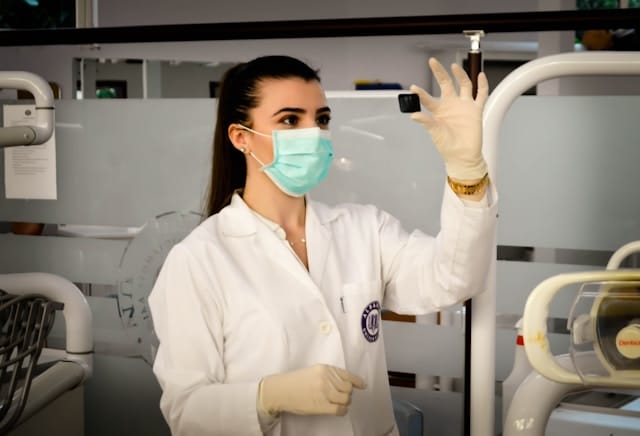What Is the Impact of Microgravity on Human Health, and How Does This Affect UK Astronauts?

Being an astronaut involves more than just rocketing off into space and floating around in microgravity. Spaceflight is a challenging environment that can introduce a number of health risks to astronauts. These health concerns are amplified by the unique conditions found in space, such as microgravity and radiation. This piece will delve into the various ways space can impact human health, focusing specifically on the effects of microgravity. We will also explore how these impacts affect the health of astronauts from the United Kingdom, who are part of a long heritage of space exploration.
Effects of Microgravity on the Body
Microgravity, or the condition of weightlessness experienced in space, has a profound impact on the human body. This section will look at some of the most significant changes that occur due to this lack of gravity.
Also to read : How to Create an Engaging Mobile Game for UK’s Historical Landmarks Education?
Muscular Changes in Space
The absence of gravity in space means that your muscles don’t have to work as hard to move your body. This sounds like it could be a good thing, but it can lead to significant muscle loss. Astronauts have been found to lose up to 20% of their muscle mass on spaceflights lasting just 5 to 11 days. This muscle loss is especially noticeable in the legs and lower back, which are used less frequently in space than on Earth.
Another effect of microgravity on muscles is a reduction in muscle tone. This can lead to muscle stiffness, pain, and decreased mobility. Astronauts have reported difficulties with tasks requiring fine motor skills after returning from space.
Have you seen this : What’s the Future of Quantum Computing in UK Scientific Research?
Changes in Blood and Fluid Pressure
In the reduced gravity environment of space, fluids in the body, including blood, are redistributed. On Earth, gravity pulls blood and other fluids towards the lower parts of your body. In space, these fluids spread out, causing an increase in blood pressure in the upper body and head. This can result in a condition known as "spaceflight induced intracranial hypertension," which can lead to vision changes and other issues.
Fluid redistribution can also cause a decrease in blood volume, as less blood is needed to pump around the body in microgravity. This can lead to a decrease in red blood cell production, a condition called "space anemia."
The Impact of Space Radiation on Human Health
One of the most significant challenges faced by astronauts in space is exposure to high levels of radiation. This section will discuss the harmful effects of space radiation on human health.
Cell Damage
Radiation can cause damage to cells, leading to a number of potential health problems. This damage can occur in a variety of ways, including through the disruption of cell function and the alteration of genetic material. This can lead to an increased risk of cancer, as damaged cells can proliferate unchecked.
Immune System Suppression
Radiation can also impact the immune system, potentially leading to a decrease in the body’s ability to fight off infections. This suppression of the immune system can be particularly problematic for long-duration space missions, where astronauts may be exposed to infectious organisms.
Adaptation and Countermeasures for UK Astronauts
Given the significant health risks posed by spaceflight and microgravity, various countermeasures and adaptation strategies have been developed. This section will focus on the strategies employed by UK astronauts to combat these health risks.
Pre-Flight Conditioning and In-Flight Exercise
UK astronauts undergo rigorous pre-flight conditioning to prepare their bodies for the effects of microgravity. This includes strength training to minimize muscle loss and cardiovascular conditioning to help counteract changes in blood and fluid pressure.
During flight, astronauts also engage in two hours of exercise each day. This includes both cardiovascular and resistance training to help maintain muscle mass and bone density.
Nutritional Countermeasures
Diet plays a crucial role in mitigating the effects of microgravity on the body. UK astronauts are provided with a diet high in protein to help combat muscle loss. They also consume a diet rich in vitamin D and calcium to help maintain bone health.
The Future of UK Spaceflight and Health Research
The UK has a rich history and promising future in spaceflight, and ensuring the health of its astronauts is a top priority. As we look to the future, ongoing research and development will continue to be critical in improving our understanding of the effects of microgravity on the body and in developing effective countermeasures.
The UK is involved in a number of international collaborations aimed at advancing space health research. This includes partnerships with organizations like NASA and the European Space Agency, which are pioneering new technologies and strategies to mitigate the health risks of spaceflight.
As our knowledge of microgravity and its effects on the body continues to grow, we can expect to see further advancements in space health research and countermeasures. This will be vitally important as we look to undertake more ambitious missions to the Moon, Mars, and beyond.
The Challenges of Long-Duration Spaceflight
Long-duration spaceflight presents its own unique set of challenges that can impact the physical and psychological health of astronauts. Microgravity exposure over an extended period can lead to significant health issues beyond muscle atrophy and fluid shift, affecting the cardiovascular system, blood volume, and even inducing oxidative stress.
Cardiovascular System and Orthostatic Intolerance
Extended exposure to microgravity can result in orthostatic intolerance, a condition where an astronaut’s blood pressure drops significantly when standing. This occurs due to the body’s inability to counteract the absence of gravity, leading to inadequate blood flow to the brain. As a result, astronauts returning from long-duration spaceflight often experience dizziness or even fainting spells when they stand up for the first time back on Earth.
Oxidative Stress and Radiation-Induced Damage
Oxidative stress, an imbalance between free radicals and antioxidants in the body, can also occur due to prolonged exposure to microgravity and space radiation. Radiation-induced damage, in particular, can lead to an increased risk of cancer and immune system suppression. According to a study by the University of Southampton, radiation exposure in space can cause changes in the body’s cells that increase the risk of developing diseases like cancer.
Innovative Countermeasures and Advances in Space Health
Given the challenges of long-duration spaceflight, continuous research and development in space health are crucial. Innovative countermeasures are being developed to combat these issues, and artificial gravity is one such promising solution.
Artificial Gravity as a Countermeasure
Artificial gravity could potentially counteract many of the health issues associated with long-duration spaceflight. By rotating a spacecraft or space station, it could create centripetal force that mimics the effect of gravity on the body. This could help to maintain bone density, muscle mass, and ensure proper blood flow throughout the body.
Advances in Space Health Research
The UK, in collaboration with international partners such as NASA and the European Space Agency, is at the forefront of space health research. These partnerships are focused on developing new technologies and strategies to counteract the health risks of space travel.
Conclusion
The UK’s contribution to the field of space health is crucial in our quest for deeper space exploration. The challenges of microgravity exposure and radiation-induced damage are significant, but the UK’s commitment to research and development of countermeasures ensures progress. As we prepare for more ambitious missions, our knowledge and understanding of space health will continue to evolve. Whether it’s through artificial gravity or innovative nutritional strategies, the goal remains the same: to ensure the safe and healthy travels of our astronauts as they boldly venture into the final frontier.
